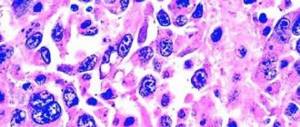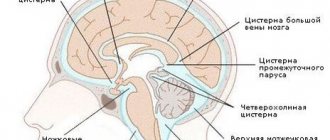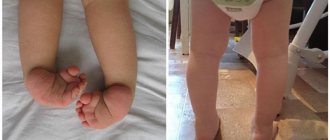Constipation during pregnancy is a typical gestational syndrome. It is characterized by a pathological decrease in intestinal motility, impaired formation and evacuation of feces. According to statistics, it develops in 80% of women during pregnancy, which is associated with physical and biochemical characteristics. Initial signs of atony of intestinal structures were recorded in 95 out of 100 expectant mothers.
Features of the management of patients during pregnancy include the need for regular examinations by a gastroenterologist and early measures to eliminate the problem. The opposite case is associated with the possibility of changes in the digestive tract in the lower sections, nervous, and circulatory systems. This is dangerous for the mother and the child.
When do we talk about defecation disorders in pregnant women?
During pregnancy, the frequency of bowel movements may decrease. But whether this is a violation or an exacerbation of a natural physiological trait of the body is not known. Pathology can be identified according to the criteria established by the Rome consensus:
- Three bathroom visits in a week or less.
- Significant density of feces, up to the formation of fecal stones; they do not pass away on their own.
- Dissatisfaction with the results of the process. Feeling of incomplete bowel movement.
- Feeling of pressure in the rectum when pushing.
- The need to strain to have a bowel movement.
- To remove residual feces, one has to resort to dilation of the anus and manual extraction.
The Bristol stool shape scale is also used in practice. According to this characteristic, lumpy and sheep-like feces correspond to the disorder in pregnant women. With a long-term process, in the 2nd trimester, alternating constipation and diarrhea is possible. This is a false reaction of the body, and not a relief of the condition.
Constipation during pregnancy - 8 ways to get rid of constipation
Constipation is a disorder of the intestinal tract, which is expressed by:
- in long intervals between bowel movements, if we compare these periods before pregnancy;
- in difficulties arising during bowel movements (even if the usual frequency of stool is maintained);
- in periodically repeated sensations of incomplete emptying of the intestines.
During such a complication, the volume of feces released from the intestines decreases, and its density also changes (it hardens, its structure resembles a stone). Often, with constipation, you have to push, experience pain and discomfort in the abdomen.
Reasons for development
Factors in the development of the pathological process depend on the stage of gestation. Constipation in the early stages of gestation is characterized by biochemical factors, in later stages - by a combination of biochemical and mechanical factors. Among the factors for the development of the condition:
- Psychological instability. Forms at 35-37 weeks and later, when delivery approaches. The patient is afraid to strain, fearing the possibility of increased uterine tone and the onset of labor. This is a false fear that almost never has a rational basis. The doctor’s job is to explain this to the patient. You also need to choose the optimal diet to eliminate the need to push.
- At 38-39 weeks of pregnancy and slightly earlier (3rd trimester), when the fetus reaches a significant size, compression of the intestinal structures by the enlarged uterus occurs. The mass effect disrupts the movement of feces through the hollow organ. In multiple pregnancies or large fetal volumes, acute intestinal obstruction may occur. This is an emergency condition that requires surgical correction.
- Physical inactivity. A woman, of her own accord or on the recommendation of a doctor, stops actively moving. There is a rational grain here, but physical activity cannot be completely excluded. This increases the risk almost threefold. It is necessary to give preference to walking (1-2 hours per day, more is possible).
- Changing the nature of the diet. Consumption of large amounts of animal protein and insufficient amounts of crude fiber. Perhaps the patient ate this way before pregnancy, but the condition imposes its own limitations. The nature of the production of enzymes and bile acids changes. Hence the weakening of digestive activity.
- Small amount of liquid. On the advice of the same doctor, the expectant mother can limit the amount of water per day. This leads to insufficient hydration of the stool. We need to find a balance. Excess fluid in pregnant women will lead to edema, too little will lead to constipation.
- Abuse of vitamin-mineral complexes. Hypervitaminosis causes disturbances in the defecation process in 35-40% of cases, becoming the result of a disturbance in the digestive process. We talked about the rules, deadlines and expediency of their reception earlier.
- Changes in the nature of blood flow in the intestines. It becomes the result of the mass effect created by the uterus. The result is atonic changes in the intestines, which in the long term end in atrophy.
- Irrational use of laxatives. Perhaps the expectant mother already suffered from constipation before pregnancy. Due to personal reasons and embarrassment, people rarely turn to a gastroenterologist with such a problem. The use of laxatives, especially of synthetic origin, leads to atrophy of smooth muscles and the development of the “lazy bowel” phenomenon. It may take years for peristalsis to recover.
- Cholestasis. Violation of the synthesis and removal of bile. Constipation in women with this diagnosis occurs in 15% of cases. Pathology is excluded on a priority basis as the most threatening.
- Hemorrhoids (why they occur, methods of treating them in pregnant women - see the link), fissures in the rectal area.
- Endocrine pathologies. Hypothyroidism, diabetes mellitus, others.
- Parkinsonism, multiple sclerosis, neurological deficiency diseases.
- Systemic autoimmune diseases (lupus erythematosus, arthritis).
- Dysbacteriosis. Occurs in 80% of women.
Factors must be considered systematically. The assessment is carried out by a competent specialist using a questionnaire as part of the diagnosis and differential diagnosis.
Process classification
It is possible to typify the process by using three criteria: the severity and severity of the clinical picture, etiology, characteristic anatomical and physiological changes.
Based on the severity of symptoms, acute and chronic constipation are distinguished. The first is determined by a complete “set” of manifestations, the second is sluggish, unstable and does not allow itself to be recognized without specific diagnostics.
Based on their origin, primary and secondary processes are distinguished. Secondary is caused by other pathologies, primary appears as a result of disorders of the intestine itself. In the absence of visible development factors, they speak of an idiopathic form (the clinical picture is obvious, the causes of intestinal dysfunction are unclear).
Based on the physiological characteristics, they are called atonic constipation and the spastic variety. The first is characterized by impaired smooth muscle tone and weakened peristalsis, the second by excessive muscle tension. They are treated differently. In the first weeks of pregnancy the spastic form predominates, in the last weeks the atonic form prevails.
Symptoms
The clinical picture of defecation dysfunction is typical for all patients. Associated manifestations are due to intoxication of the body.
No urge to have a bowel movement. Evidence of insufficient stimulation (irritation) of the intestinal walls. It often turns out to be the result of poor nutrition, with a poor content of plant coarse fiber, and atony.
In other cases, the urge is present, but defecation is impossible because the diameter of the stool is too large. It is also possible to have a false urge (tenesmus). This is a typical feature of spastic constipation.
Stomach ache. Localized on the left, near the epigastrium. They have a diffuse, diffuse character, constantly wandering and mixing. Manifest in the projection of the large intestine. As the process worsens (if there is no bowel movement for 7 days or more), a sensation of a stone in the abdomen is noted. Heaviness, bloating, rumbling - a triad characteristic of advanced constipation of any type.
Dyspeptic symptoms are the result of generalized digestive problems. Patients complain of nausea, vomiting, sour belching, indigestion (food “stands”, refusing to move along the tract). Enzymatic deficiency and impaired bile secretion are objectively detected. Therefore, the digestion process really slows down, for at least several hours.
Symptoms of intoxication are characteristic of prolonged, persistent constipation. In the first trimester of pregnancy, the phenomena of poisoning of the body with protein breakdown products are superimposed on the phenomena of toxicosis, where one begins and where the other is difficult to find out. The following are detected: nausea, headache, dizziness, lack of appetite, allergic reactions (skin rash like eczema or dermatitis).
A period of imaginary well-being may begin with loose stools and diarrhea. At the same time, the feces become green, with a sharp putrefactive odor. This is a typical sign of associated dysbiosis.
First signs of pregnancy before menstruation
There are many early signs of pregnancy before your period is missed. Among them are pain, heaviness in the lower abdomen, a feeling of fullness in the bladder, dizziness, tingling in the chest. These symptoms may also indicate the approach of menstruation, a cold or malaise. If the first signs of pregnancy before a missed period appear in aggregate and are not typical for a particular woman, then, most likely, conception has occurred.
During pregnancy, light vaginal discharge occurs, but it may also indicate a disease such as thrush. It is important to consult a doctor, conduct a diagnosis, and take tests to rule out infections in the genital organs: uterus, ovaries. As a rule, the birth of a baby is indicated by abundant white discharge; it is not thick, but not liquid either. The discharge may also be pink, brown or yellow (they appear 7-14 days after conception), which means that the embryo has settled in the uterus. They have a spreading character and are few in number.
If there was previously erosion of the cervix, early signs of pregnancy before the delay appear in the form of mild bloody discharge. This symptom sometimes indicates the onset of menstruation, so suspicion of conception is unlikely to arise. If the bleeding is severe or is of a nature that does not correspond to the standard course of the process, then it is better to go to the gynecologist to hear his verdict. The danger is that bleeding can be a sign of an ectopic pregnancy.
The first signs of pregnancy before a missed period include a symptom such as a constant feeling of fullness in the bladder. A woman experiences it even after leaving the toilet. During pregnancy, there is a more frequent urge to urinate; the expectant mother visits the toilet every 20-30 minutes. This is a normal phenomenon due to the structure of the body and the close location of the uterine wall to the bladder.
In some cases, after frequent urination, discomfort occurs in the genitals. The sensations are similar to those that occur with cystitis. If a woman does not yet know that she is expecting a child, but assumes, then it is better not to take any medications, not to use alternative medicine methods, but to go to see a doctor. Only after the examination, the gynecologist will tell you how to deal with discomfort so as not to harm the baby.
Possible complications of constipation that develops during pregnancy
Long-term defecation disorders have a negative impact on the condition of the mother and fetus. Why is constipation dangerous? A correlation is observed between duration and the likelihood of complications.
Although the likelihood of such an outcome is low, pushing can lead to premature birth and leakage of amniotic fluid.
The second likely outcome is fetal intoxication due to protein breakdown products entering the bloodstream through the placenta. In the early stages, this results in disturbances in physical and mental development, in the later stages - the likelihood of premature birth.
Placental insufficiency and hypoxia (oxygen starvation) of the child are possible due to inflammatory processes in the reproductive system. What kind - doctors have to find out. In conditions of prolonged stagnation of feces, active reproduction of pathogenic flora and a shift in the balance towards its increase are observed. Dysbacteriosis is fraught with septic processes in the fetal membrane and the mother’s body.
In addition to harm to the child, other complications are possible:
- hemorrhoids as a result of constant straining;
- anorectal fissures with the prospect of tissue infection;
- Long-term fecal incontinence (the result of excessive stretching of the rectum and sphincter).
Preventing dangerous consequences is one of the goals of early therapy.
Causes of constipation at different stages of pregnancy
Constipation in pregnant women is caused by many factors. This is a restructuring of the general hormonal background, an increase in the size of the uterus and a functional shift in the intestines due to fetal pressure. Often, the reason for stool retention is a purely psychological reason, when a woman in an interesting position is afraid of strong strain during bowel movements, so as not to harm her child. In addition, anxiety about the possible appearance of hemorrhoids interferes with normal bowel movements.
Constipation during early pregnancy is caused by the following reasons:
- consequences of systemic diseases;
- decreased gastric secretion and reduction of its evacuation capacity;
- increased production of progesterone by the body, which reduces the intensity of intestinal motility.
Constipation during pregnancy in the 2nd and 3rd trimesters occurs for a number of reasons:
- Transformations occurring at the hormonal level and increased production of progesterone by the body, which helps reduce the tone of the muscles of the intestinal tract, which causes its hypotension.
- Lack of hard fiber in the daily menu, found in vegetables, fruits and grains. This also includes changes in taste preferences, in which, for example, greens or other necessary food products seem tasteless or generally unpleasant to a woman in a position.
- Insufficient water intake due to fear of possible swelling of the legs.
- Emotional stress, which almost all women experience during pregnancy, contributes to a decrease in intestinal motility. Fear of the upcoming birth and changes at the psycho-emotional level serve as a prerequisite for the occurrence of constipation of neurogenic etiology.
- Lack of physical activity, especially in the 3rd trimester of pregnancy, and when there is a threat of miscarriage, sometimes a woman has to remain in forced bed rest - leads to intestinal atony.
- Taking certain vitamins and microelements, which are sometimes recommended for pregnant women, is quite capable of causing a decrease in colon motility.
- A significant increase in the size of the uterus in later stages and a change in the location of any intestinal loop can dull the feeling of the urge to defecate.
- Increased manifestations of chronic gastrointestinal diseases, if they were observed before pregnancy.
Diagnostic measures
Management of pregnant women with constipation is the responsibility of two doctors: a gastroenterologist and a gynecologist. An approximate examination scheme looks like this:
- Oral assessment of the patient's complaints. The most common are the inability to completely empty the bowel, false urges (tenesmus), pain, and prolonged absence of bowel movements.
- Anamnesis collection. Determination of concomitant pathologies that can become an impetus for the development of constipation during pregnancy, family history, the nature of the onset of the process (single-stage or gradual), duration of the course, drug history (what drugs the patient took, for how long, as prescribed by the doctor or by her own decision).
- Physical examination. Palpation is possible only in 1-2 trimesters. The anterior abdominal wall is hard and painful when touched.
- Rectal digital examination. Prescribed to assess the organic causes of the disorder (hemorrhoids, anal fissure).
- Irrigoscopy with contrast enhancement. Identifies organic factors of damage to the large intestine, acquired anatomical malformations.
- Coprography. Study of fecal characteristics.
X-ray of the abdominal organs during gestation is contraindicated. Preference is given to magnetic resonance imaging if the gynecologist considers it possible.
In the absence of data for objective organic pathologies, an assessment of psychiatric status is indicated. Pregnant women with constipation need to consult a psychotherapist to rule out a psychosomatic factor. Possible diagnoses include anxiety disorder, depression, and somatotropic disorder.
During diagnosis, test treatment with laxatives is carried out. In the absence of an adequate response, further instrumental and laboratory examinations are indicated.
Many classical diagnostic methods are not practiced due to the possibility of harming the fetus.
How to treat constipation?
The therapeutic concept is developed upon completion of the diagnosis. Medication methods are used and dietary nutrition is prescribed. Drugs from several pharmaceutical groups are used. Laxatives for constipation allowed during pregnancy are few. Even they require a doctor’s prescription after assessing the general condition of the mother in labor.
Osmotic preparations based on lactulose. Prelax, Duphalac. After use, the pressure in the intestines increases due to an increase in the volume of stool.
One of the few laxatives for constipation in pregnant women approved for use (which, nevertheless, must be prescribed by a doctor)
Softeners. Olive oil, sunflower oil, Vaseline. Used in combination, they are not suitable for monotherapy due to the low therapeutic effect. Vaseline suppositories are also used, which weaken the resistance of feces when straining.
What medications should not be used:
- Antispasmodics. They cause muscle relaxation, including reducing the tone of the uterine muscles. In the early stages, spontaneous termination of pregnancy (miscarriage) is possible, in the later stages - premature birth. Constipation cannot be treated in this way.
- Motor regulators. Will affect the uterine muscles. Everything ends identically.
- Means for irritating intestinal receptors and enhancing peristalsis.
At 40 weeks of gestation, the use of medications is completely prohibited. Until delivery.
Doctors are limited in how they treat constipation in pregnant women. Microenemas are prescribed, but they are not widely used due to their inability to help in clinically complex cases.
An enema is possible in the 1st trimester, also in the middle of gestation. This is an old but still relevant method of emergency assistance. It has a significant disadvantage - a total imbalance of intestinal flora, which will lead to aggravation of the condition and the impossibility of stable bowel movements for several weeks.
During pregnancy, disturbances in the defecation process are eliminated using less radical methods. Treatment involves adjusting your diet and lifestyle. Treatment table No. 3 is prescribed.
Basic foods for constipation:
- fresh vegetables high in fiber (carrots, cabbage, turnips; potatoes are best limited due to their high starch concentration);
- fruits with the same properties: apples, pears, plums (soft fruits do not contain fiber, but can enhance peristalsis naturally);
- wholemeal bread;
- grain crops, cereals based on them (millet, oatmeal, except rice and semolina);
- protein, lean dietary meat: chicken, turkey;
- fermented milk products of natural origin (kefir, milk, unsweetened yogurt, cottage cheese).
What else helps with constipation? Dried fruits (prunes, dried apricots, figs) in raw and boiled form (in the form of decoctions, compotes).
Products that have one or another effect on the stool of a pregnant woman
Prohibited products:
- fat meat;
- It is better to replace coffee and tea with granulated chicory;
- marinades, pickles;
- semi-finished products;
- smoked meats, fried foods;
- canned food;
- mustard, spices and seasonings, sauces, except berries;
- baking;
- pasta;
- bakery;
- jelly;
- foods rich in sugar;
- eggs;
- black pepper;
- chocolate, jam, marmalade, butter cookies;
- sour cream.
The basic principles of dietary nutrition include specific dietary recommendations. You need to eat in small portions, 4-5 times a day. Breakfast should be plentiful, with plenty of coarse fiber. It is acceptable to create a contrast effect (drink a glass of cold water, eat a warm dish, eat something chilled). Cooking methods: boiling, steaming. Frying is contraindicated.
The share of protein is 55%, fats are 15%, complex carbohydrates are 30%. The amount of table salt is no more than 6-7 grams per day. A complete rejection of sodium compounds is unacceptable.
Consumption of wheat bran as a dietary supplement helps relieve constipation. They require lengthy processing, so you shouldn’t overuse them.
Prevention
It is difficult to avoid constipation during pregnancy due to physiological changes in the body of the expectant mother. But you can minimize the risks by adhering to the rules of specific prevention. Recommendations include quitting smoking and drinking alcohol. Ethanol, cadmium, nickel, and other harmful compounds provoke vascular stenosis, impair blood flow and, in the short term, lead to atonic disruption of the bowel movement process.
Normalization of drinking regime. Normally, you need to consume 2 liters of water per day. The volume is adjusted taking into account the condition of the patient’s excretory system.
Physical inactivity is excluded. Physical activity is minimal (walking for 1-3 hours throughout the day, it is better to “dose” the load throughout the day: an hour in the morning, an hour in the afternoon, the same amount in the evening).
Self-administration of medications is unacceptable. This especially applies to vitamin-mineral complexes, non-steroidal anti-inflammatory drugs, and antipsychotic drugs. Normalization of the defecation regime is indicated: at the first urge you need to visit the toilet. Delayed bowel movement leads to spastic constipation and fecal incontinence. If possible, stressful situations and psycho-emotional stress should be avoided. It is acceptable to use light sedatives of plant origin (valerian, motherwort, in tablet form, but not alcohol tinctures).
Recommended: I'm pregnant! What changes are happening in my body? The answer to this question is on this page.
How to determine pregnancy before delay
You can predict pregnancy without obvious evidence if you know the ovulation period.
This process in a woman’s body begins on days 12-14 of the menstrual cycle, but may deviate slightly (due to stress, hormonal imbalance or sexually transmitted infection). With a slight glitch, you can still get pregnant. At the same time, the following symptoms may occur during ovulation: Related articles What drugs can be used to terminate a pregnancy Table determining the sex of the unborn child Signs of implantation bleeding
- lumbar pain;
- thrush;
- tingling in the lower abdomen;
- increase in mucous secretions.
If at this time the woman had sexual intercourse and a child is planned, there is a high probability that conception will occur. Next, expectant parents have to wait 2-3 weeks to take a pregnancy test or blood test. Many representatives of the fairer sex want to know from the first days that conception has occurred. They listen to their body, this is correct: by external symptoms and internal well-being, you can notice signs of pregnancy in the first days after intercourse (6-7 days).










